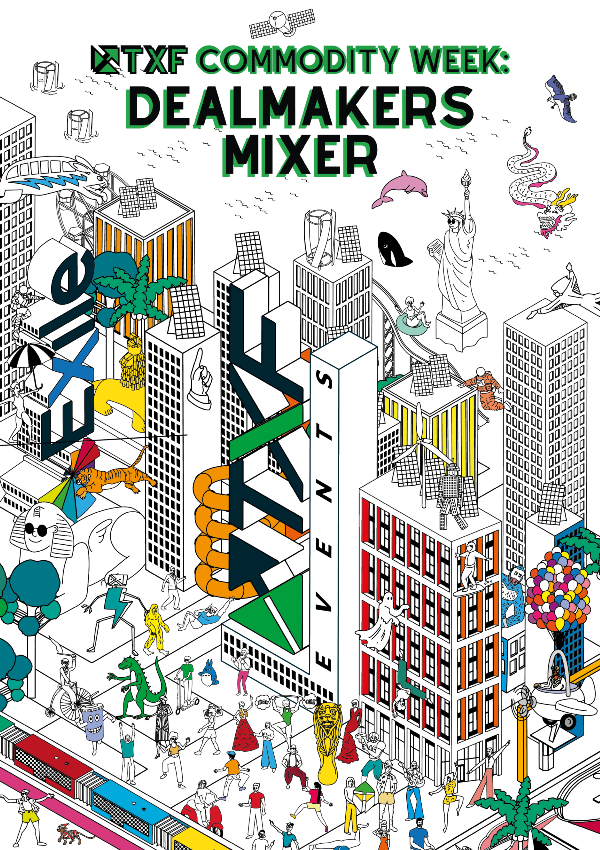How can banks avoid a lending crisis and accelerate economic growth?
Converging market forces threaten to create a global lending crisis and prevent economic growth. Tradeteq CEO Christoph Gugelmann explores the future of trade finance and how firms are collaborating to overcome barriers to lending.

Trade finance acts as the backbone of the global economy, yet concerns remain around the growing gap between the banks’ supply and market demand. Several market factors have shone new light on the issue, including the increasing cost of commodities, which is impacting the availability of credit, alongside greater capital restrictions – particularly the upcoming Basel IV requirements.
In an effort to tackle the impact on trade finance lending, now is the time for banks to renew their focus on collaborative solutions.
Commodities pricing is impacting the availability of credit
The current financial climate is undoubtedly quite tense and factors such as financial volatility, sustainable development divestment, disruption to global supply chains and increased trade costs have all resulted in a sharp hike in the cost of commodities. Many economist centres, including the United Nations Conference on Trade and Development (Unctad) are most concerned about two critical commodities – food and fuel.
Unctad has warned that the soaring increase of food and fuel prices will not only affect the most vulnerable in developing countries but also be hard felt across global trade, especially in terms of financing for small and medium enterprises.
One of the main impacts of the rising commodity costs is on the availability of credit. Many suppliers are now finding that their current credit lines cannot cover the same volume of goods at their inflated cost. Further complication arises if firms in the supply chain have lower credit quality and are unable to meet cargo costs, leading to a delay in the supply chain. Other buyers may even exit regions where credit is limited.
Regulation continues to cause restrictions
Alongside the rising cost of commodities, trade finance is also facing regulatory constraints. Basel III has already placed tight restrictions on banks active in trade finance lending, and with the implementation of Basel IV set to take place in January 2023, firms are under pressure. Without adequate preparations, the new iteration will exacerbate the problem.
The updates to regulation have been at the forefront of a continued debate among industry stakeholders. The International Chamber of Commerce highlighted the possibility of damage to banks, saying they “may have severe unintended consequences for the provision of cost-effective trade finance to the real economy”. Various banking associations have also weighed in, such as Finance Denmark, which stated in a memo that the changes “will result in an overall increase in capital requirement for EU banks of 23.6 %” and that the figures “are in sharp contrast to the G20 indication that the final Basel III revision should not bring about a significant increase in overall capital requirements”.
Closing the trade finance gap
These two challenges pose a problem for the trade finance gap. According to the Asian Development Bank, the gap widened in 2021 to $1.7 trillion – from $1.5 trillion in 2018 – leaving many businesses unable to access the funding needed to operate. The health of the global trade system depends on the ability to reduce this gap but it’s a persistent challenge and a worrying symptom of a sector under increasing pressure.
A large part of the gap stems from small and medium-sized businesses in emerging markets, and when paired with Basel IV’s impact, it will be difficult to address with additional lending or credit. Solutions have emerged to help overcome these barriers, such as the possibility of co-financing and greater digitalisation.
The role of investors
Banks, however, have adopted an alternative strategy by way of distributing trade finance instruments to other banks and the capital market. Where lending restrictions have arisen, this method allows for additional funding, since banks can increase their net interest income, boost return on equity and overall do more with less. This is beneficial to all parties involved – the banks, the investors, the businesses involved in the supply chain and the communities that rely on trade finance.
The problem is banks have historically distributed only a small percentage of their trade finance books to capital markets. In addition, capital markets access for investors has been limited due to the need for repackaging of portfolio risk and operationally intense reporting requirements. For an investment bank to execute on behalf of an asset manager, the transaction costs for a low risk, low yielding product would regularly exceed the asset spread of short-term bank exposure. This limits access to a small portion of riskier assets.
The trade finance infrastructure now exists to enable end-to-end straight-through-processing of hundreds of thousands of instruments in a low-cost way. This is equipping asset managers and commercial banks with direct access to trade finance assets, enabling alternative investors to channel more capital into banks and onto corporates.
What’s clear is that market factors have added pressure to banks’ already strained lending operations – and these are likely to continue. As a result, trade finance distribution is now emerging as a lifeline and a necessity, enabling firms to remove debt from their balance sheet and continue lending. Ultimately, this will help boost global trade and eventually, economic growth.





